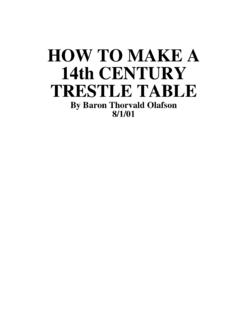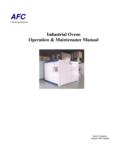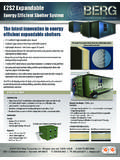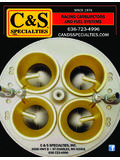Transcription of Project 18444EZ: Trestle Table and Benches
1 Project 18444EZ: Trestle Table and Benches In the early days of our country, Trestle tables were popular because they could easily be disassembled and moved out of the way when not in use no small advantage in the one or two room homes commonly found back then. While that feature is not as impor- tant today, the Trestle Table remains a favorite Early American piece. Those early Trestle tables were often made of pine, so we used that wood for our own Table . Oak is another good choice. Trestle Table and Benches Materials List Part Description Size No. Req'd A Table Leg 1-3/4" x 12" x 23-1/4" (incl. tenons) 2. B Table Foot 3-1/2" x 3-1/2" x 29" 2. C Table Cleat 1-3/4" x 2" x 32" 2.
2 D Table Cleat Pin 1/4" dia. x 1-3/4" 4. E Table Foot Pin 1/4" dia. x 2-3/4" 4. F Table Stretcher 1-3/4" x 5" x 42-1/2" 1. G Table Peg 1-3/4" x 2" x 5-1/4" 2. H Table Top 1-3/4" x 39" x 69" 1. I Table Fastener 5/8" x 1-1/4" 6. AA Bench Leg 1-3/4" x 10-1/2" x 15-1/2" (incl. tenons) 2. BB Bench Foot 1-3/4" x 3-1/2" x 15-3/4 2. CC Bench Cleat 1-3/4" x 2" x 11-1/4" 2. DD Bench Cleat Pin 1/4" dia. x l-3/4" 4. EE Bench Foot Pin 1/4" dia. x 2-3/4" 4. FF Bench Stretcher 1-3/4" x 4" x 53-1/4" 1. GG Bench Peg 1-1/2" x 1-3/4" x 4" 2. HH Bench Seat 1-3/4" x 11-3/4" x 67" 1. II Bench Fastener 1" x 1" Angle 2. Trestle Table and Benches Complete Schematic Table and Benches Instructions Step 1: Make the Table Legs (A).
3 1. Obtain or edge-glue, dowel, and clamp to make 12" wide Table leg (A) stock . 2. Cut the legs (A) to length. 3. Use the dado-head cutter to make the 1" thick x 11" wide x 1-3/4" long tenon on each end of the leg. 4. Mark 1" wide x 5" long dimensions for the stretcher mortise on each Table leg. 5. Make sure the edges are square as you use a sharp chisel to cut out each mortise. 6. Transfer the Table leg grid pattern to the stock. 7. Cut out the curved profile using a band or saber saw. Step 2: Make the Table Feet (B). 1. Face-glue being sure to keep the bottom edges flush so you don't need to joint the surface two pieces of 1-3/4" thick stock to make the feet (B).
4 2. Use a drill press to bore a series of 1" diameter holes to begin making the mortise for the leg tenon in each foot. 3. Use a chisel to clean up any remaining material 4. Use a band saw to make the 1/2" deep cut-out on the bottom. 5. Layout the location of each of the 2" tapers at the ends of the feet. 6. Use a sharp hand plane to cut to shape. Step 3: Make the Table Cleat (C). 1. Cut the cleat (part C) to length and width from 1-3/4" thick stock. 2. Lay out the location of the mortise. 3. Cut out the mortise in the same way you cut out the foot mortise. 4. Make the three grooves in each cleat to accept the Table top fasteners (parts I). Step 4: Make the Table Stretcher (F).
5 1. Cut the stretcher (part F) to overall length and width from 1-3/4" stock. 2. Make repeated passes with the dado-head cutter to cut the tenon on each end of the stretcher. 3. Refer to the detail and lay out and mark the location of the mortise for the peg (part G). 4. Use a sharp chisel to cut out the mortise. Step 5: Make the Table Peg 1. Cut 2" square stock to a length of about 8" to make the peg (part G). 2. Use a push stick and rip the piece to 1-1/2". 3. Lay out the taper as shown. 4. Use a hand plane to cut the taper. 5. Assemble the stretcher to the leg and install the peg. 6. Use a mallet to tap it in place. 7. Check the fit-up then trim any excess length on the Table saw.
6 Step 6: Make the Table Top 1. Use dowel pins, edge-glue, and clamp the 1-3/4" stock to make the top. 2. Allow the glue to dry overnight. 3. Cut the tabletop to length and width. Step 7: Sand, Assemble, and Finish the Table 1. Sand all Table parts thoroughly, finishing with 220-grit sandpaper. NOTE: Take particular care to smooth the edges of the curves. 2. Assemble the leg to the foot and cleat with glue and clamps. 3. Allow the glue to dry. 4. Drill 1/4" diameter holes as shown. 5. Apply glue to the cleat pins (parts D) and the foot pins (parts E). 6. Drive the pins into the holes. 7. Allow the glue to dry. 8. Trim flush and sand smooth. 9. Stain and final finish all parts with two coats of Minwax's Early American Wood Finish followed by two coats of their Antique 0il Finish.
7 10. Insert one end of the tabletop fastener into the slot in part C for each tabletop fastener. 11. Attach the tabletop fasteners, and thus the Table top, to the base with round-head wood screws. Step 8: Make the Benches 1. Make the Benches following basically the same procedures that you followed to make the Table . 2. Cut the 1" thick x 9-1/2" wide x 1-1/4" long tenon on each end of the legs (parts AA). 3. Cut the corresponding mortise in the foot (parts BB) and the cleats (part CC). 4. Use standard 1" x 1" steel angle stock cut to a length of 10-1/4" and round-head wood screws to attach the top (part HH) to the base (parts AA, BB, and CC). 5. Final sand all surfaces.
8 6. Apply a stain and final finish to match the Table . Step 9:Apply Wax Apply a coat of paste wax to both the Benches and the Table to complete the Project . These plans were originally published in Volume 8 Issue 1 of The Woodworker's Journal ( 1984, pages 56-58).









